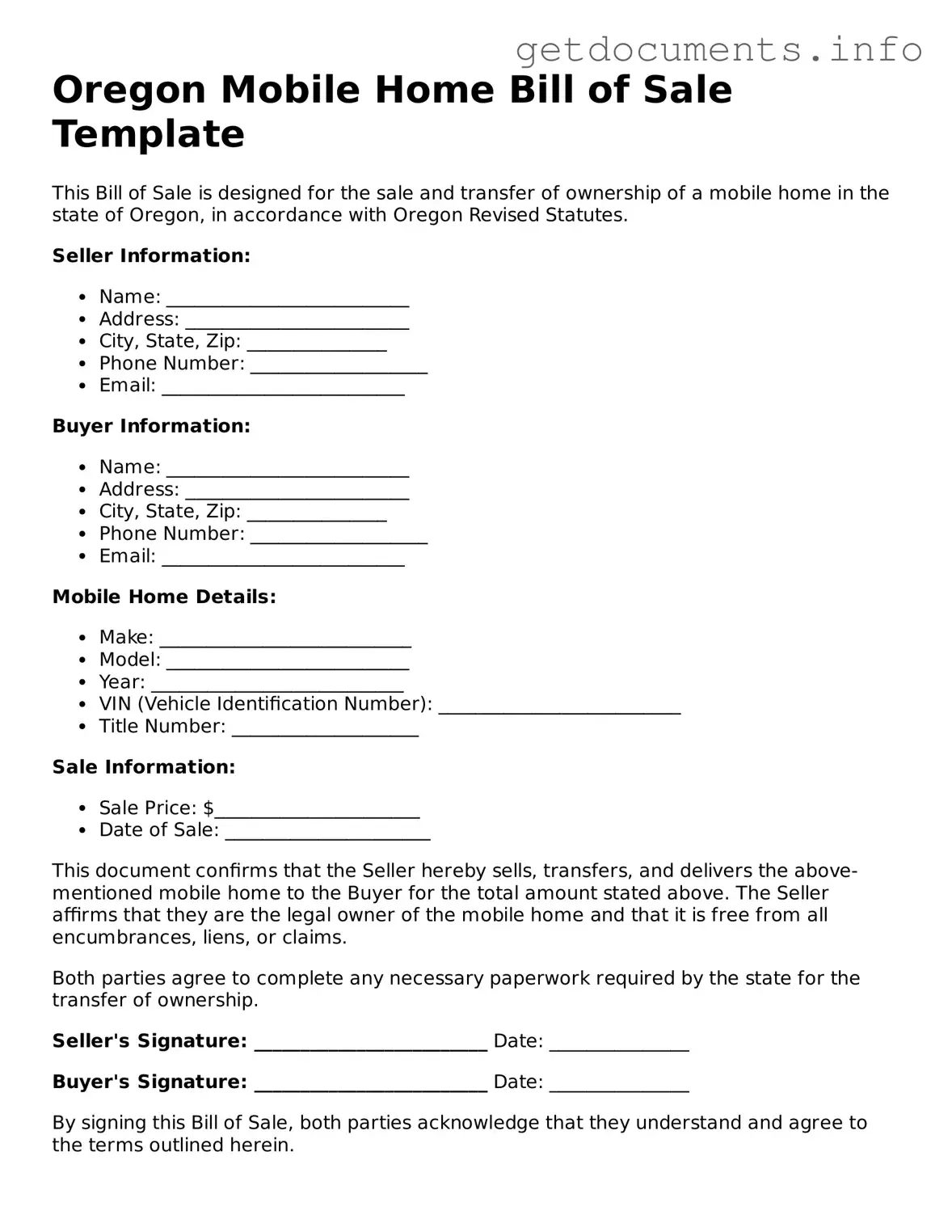Free Mobile Home Bill of Sale Template for Oregon
The Oregon Mobile Home Bill of Sale form is a legal document that facilitates the transfer of ownership of a mobile home from one party to another. This form serves as proof of the sale and includes essential details about the transaction. Understanding how to properly fill out this form is crucial for both buyers and sellers to ensure a smooth transfer process.
Ready to complete your transaction? Fill out the form by clicking the button below.
Access Mobile Home Bill of Sale Editor

Free Mobile Home Bill of Sale Template for Oregon
Access Mobile Home Bill of Sale Editor
Got places to be? Complete the form fast
Fill out Mobile Home Bill of Sale online and avoid printing or scanning.
Access Mobile Home Bill of Sale Editor
or
⇩ PDF File
